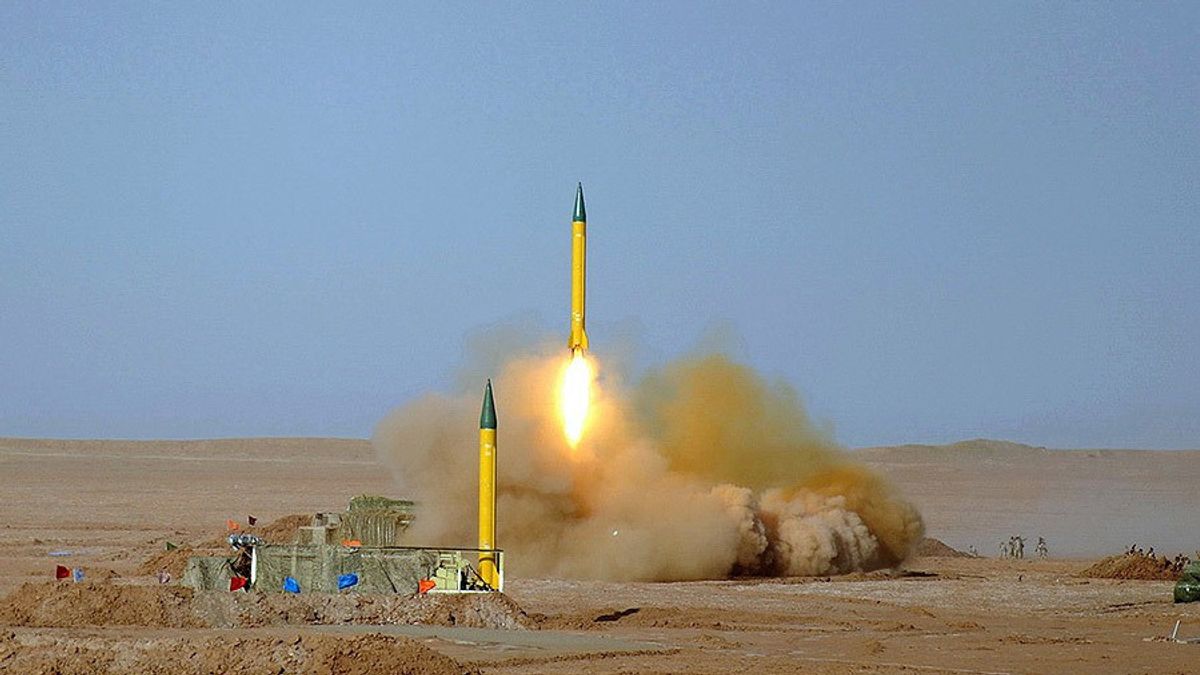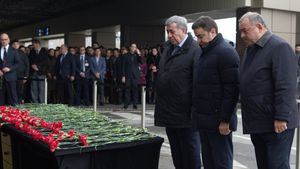JAKARTA - After 13 years, the United Nations (UN) has finally lifted the embargo that limits the purchase of weapons by Iran. Now the country can sell and buy conventional weapons including missiles, helicopters and tanks. This decision then made the United States (US) furious.
Quoting The Guardian , the embargo was lifted on Sunday, October 18 yesterday. The lifting of the embargo is also in line with the five-year schedule set out in the Iran nuclear deal that was signed in 2015.
Russia and China are the two countries most likely now to offer weapons to Iran. This makes Iran less dependent on its own weapons industry. But Iran's poor financial situation and the threat of continued US sanctions against anyone trading with the country mean Iran is unlikely to make purchases in the short term.
"Starting today, all restrictions on the transfer of arms, related activities and financial services to and from the Islamic Republic of Iran are all automatically halted," the Iranian Foreign Ministry said. Meanwhile, Iranian Foreign Minister Javad Zarif described the day as an important day. He placed the event in a diplomatic as well as military context.
"The normalization of Iran's defense cooperation with the world today is a victory for multilateralism and peace and security in our region," said Zarif.
However, Iran's Ministry of Defense said "unconventional weapons, weapons of mass destruction and purchase of conventional weapons" have no place in the country's defense doctrine. Meanwhile the European Union and Britain will maintain an arms embargo on Iran even though the United Nations has lifted it.
France, Germany and the UK reject US attempts to impose all UN sanctions on Iran, fearing Iran will withdraw altogether from the joint comprehensive plan of action (JCPOA), the official name for the 2015 deal. Three European powers believe the JCPOA is still holding Iran back from becoming a nuclear power. military, the main objective of the deal.
The JCPOA included a clause stipulating lifting the UN arms embargo five years after it was signed on 15 October 2015. Europe hopes to negotiate an extension of the voluntary embargo for 18 months, but has been unable to persuade Russia and China to step down.
Three European countries will now rely on an EU embargo, first introduced in 2007 that will continue until 2023. The embargo includes conventional weapons and missile technology.
Rejected by the US
The United Nations' decision to lift the Iran embargo has protested the US. Iran's arch enemy claims that refusing to reimpose all UN sanctions against Iran is tantamount to arming Iranian terrorists.
In a statement, the US State Department threatened all countries and companies not to trade arms with Iran. If this continues, they will run the risk of sanctions from the US Treasury.
Quoting Gatra , in mid-August, the US passed a resolution to extend the arms embargo indefinitely. And it met the rejection of the UN Security Council.
US Secretary of State Mike Pompeo later condemned the UNSC members' decision as "an unforgivable act." "Iran will spread greater chaos and destruction when the embargo ends," Pompeo said.
In theory, Iran is now free to buy tanks, armored fighting vehicles and high-caliber artillery systems, combat aircraft and naval vessels without the need for UN approval. Iran's defense spending last year was around $ 18.4 billion or about 3.5 percent of the country's GDP, although the exact value is disputed. However, Iran's economy has recently deteriorated due to COVID-19.
Pressure from the US also has an impact on those trying to trade with Iran. Most of the defense spending is made by the Revolutionary Guards and Iran's core military forces come from a mix of proxy militias, cyber warfare, ballistic missiles and a large defense force.
The English, Chinese, Japanese, Arabic, and French versions are automatically generated by the AI. So there may still be inaccuracies in translating, please always see Indonesian as our main language. (system supported by DigitalSiber.id)










